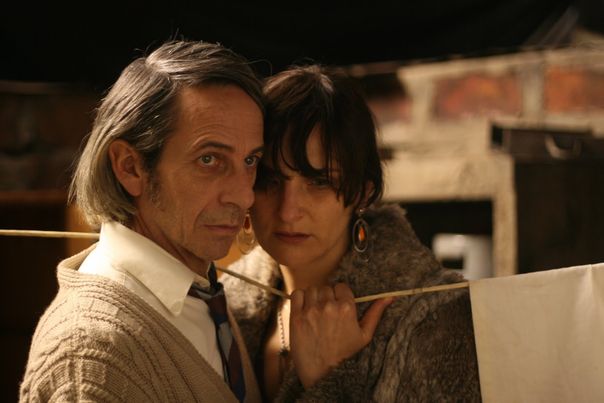Forgiven by history
Pablo Larrain’s 2010 film POST MORTEM masterfully opens up a new approach of the Southern American nations to deal with their past, writes Jacqueline Venet of the 2011 Talent Press Guadalajara.

POST MORTEM
The topic of dictatorships and political and military laceration, to which the Latin-American space has been subject for so many years, is a recurring theme in these lands. Without implying any negative connotation, this is not only a recurring theme, but also one highly typical of film in the region. A type of mono-theme that inscribes itself, whether it be in a hidden or in a highly exacerbated way in the audiovisual iconography, in order to establish an identified and geographic discourse.
Having received recognition in festivals and reviews, Pablo Larrain’s 2010 film POST MORTEM has caused the discussion of the dictatorship in Chile to be sustained and echoed throughout the region. It does so with tools that are increasingly latent in the new generations of filmmakers from the continent. I refer here to the contention, expressiveness regulated by a certain de-dramatization of narrative recourses, as well as the disconnect of great social discourses away from grandiose eloquence and macro histories, but rather taking said events from the intimacy of more personal conflicts in order to directly enter into a dialogue with spaces and massive public phenomena.
In this way, history in POST MORTEM takes an apparently more simple path, with more dialogue. It follows the path of the micro story that imposes a particularized, and paradoxically more plural, point of view. We have here a delicious deconstruction using memory and toeing the fine line between fiction and reality. A true story is born, that drinks both from the false chronic and the bloodiest and most disturbing passages from the days prior to the coup d’état in 1973 that imposed a dictatorship in Chile.
Based on the reality of the world that he lives in, and the one that he, a common and gray man, dedicated to the informative anatomical annotation of the cause, mentally constructs, nature and other elements tied to the death of the subjects, a devastating dissection of Chilean reality appears. Through the eyes of the empty existence of Mario Cornejo, we arrive at a social and political situation as lacerated and void of true motivations as that of the poor insignificant hero. This public servant becomes a metaphor for a diagnostic “doctor” of the sick psyche who stirred up the historic role of the nation towards the unearthing of freedom. Larrain establishes parallels between subject and history from the evermore-famous anonymous heroes, affording a lesser known, richer and looser artist, who is free of a transcendent process. Apparently “sinflictivo”, this is a de-centered being much like the very society, and plays the same preponderant role of the Chilean destiny after the coup d’état: the belief in a substantial change that only a life eternally related to death has imposed.
The footage is consumed like a precise autopsy, from the most minute details, to close a case that remains open in the collective memory of a people. The director plays, intensely and piercingly, with all the tools of tragedy that one should remember as it is recorded in the memory of an entire people. However, the past, as Hegel would say, is no more than another present, and it contains that which we constantly live; only the past and future exist in the present which we consume and dignify, or deconstruct from our moment. In this sense, Larrain builds a Chilean reality from the present, coming from the memory and disenchantment of the past.
It is essential that we never hear the voice of true power. Everyone is, in one way or another, a being without name, importance, social rank. The figure that most stands out is the soldier, and even then he is just another vehicle to greater circles that are never named. The two big political figures in Chile at this moment, antagonists par excellence, are Pinochet and Salvador Allende. Allende, in his fight for more inclusive thought, only really speaks from the grave, in the most terrible and quotidian anatomic dissection. Pinochet never speaks explicitly. The role of the dictator is present in the entire film, but, he is not mentioned nor appears, not even linguistically in adjectives and pronouns that refer to him as a subject of relevance. He is simply the receptor that from an active point of view beyond ”complitud” and film information, resolves this apparent presence-absence with clear codes about the history of a nation. Now, the character who in reality assumes this dictatorial role, the true power, is the insignificant Cornejo; through whom the true despotic and criminal condition of the human being is exposed.
POST MORTEM is a love story with prophetic breath. A heroic journey towards desertion of subject and history, rescuing these once and for all with historic accuracy. This use of the truth structures the whole film. More than half of the narration constructs, as it appears, with the genius of all truth-creating mechanisms. This supposed logic imposes an accurate point of view on those things that occur only in the mind of the main character. The doubt, the illusion, and the ambiguity between discourses, become perennial narrative recourses. POST MORTEM is an enormous and intense apocrypha of an arid reality, that imposes a “before” on the Chile of today, but is recounted from the pages, and at these heights is not any less true.

